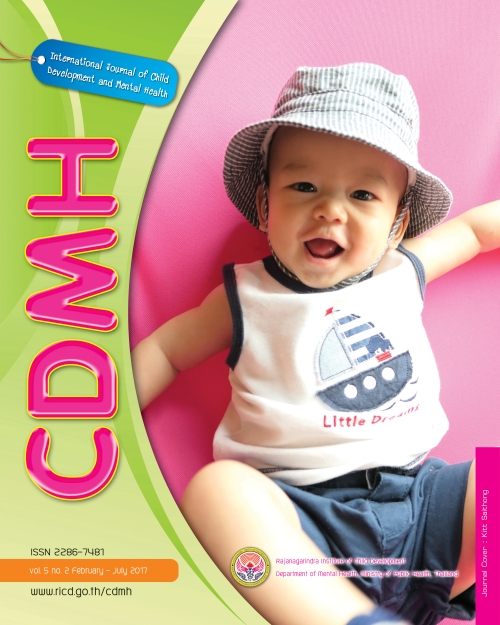The Effect of Occupational Therapy on Volitional and Vocational Skills in the Thai Juvenile Justice System
Main Article Content
Abstract
Even though many Occupational Therapy
(OT) programs contribute to social well-being and
life skills enhancement during a person’s lifespan,
there are only a few OT programs especially
created for the Juvenile Justice System.
Collaborative programming was needed between
OT staff and staff at the Ban Mutita Juvenile
Vocational Training Center for Boys. This study
aimed to compare baseline and post-intervention
of the volitional and vocational skills in the
participants who had been selected for the OT
program. Selective sampling was conducted in
order to obtain participants with low volitional
and vocational skills (n = 31 out of 105 boys). Two
standard assessments were repeated to compare
the baseline and post-intervention which included
group dynamics of cooking, sport, and recreational
activities for 4 weeks, four hours per session
a week. A Paired-T test was finally analyzed.
Volitional and vocational skills were significantly
improved after the participants engaged in the
OT supplement program, in combination with
programs provided by vocational teachers. OT
has demonstrated a positive effect on volitional
and vocational skills in the Thai Juvenile Justice
System. This pilot study has provided useful
evidence about young offenders who need
productive leisure engagement in order to gain
self-achievement, leading to the supportive
environments of education and employment in
the future.
Article Details
The authors retain copyright and permit the journal the copyright of first publication
Articles, once having passed the review process and accepted for publication in the CDMH Journal, are copyrighted under the CDMH Journal, Department of Mental Health, Ministry of Public Health. Please be aware distribution of CDMH Journal content for commercial purposes without permission is expressly prohibited. However, distribution with intent to educate, advocate, or spread awareness within the general public and research communities is permitted and encouraged with the understanding that the CDMH Journal Editorial Board do not hold jurisdiction or liability for any accompanying comments, text, or information from third parties, either in favor for or against the original article’s assertions, conclusions, methodology, or content.


